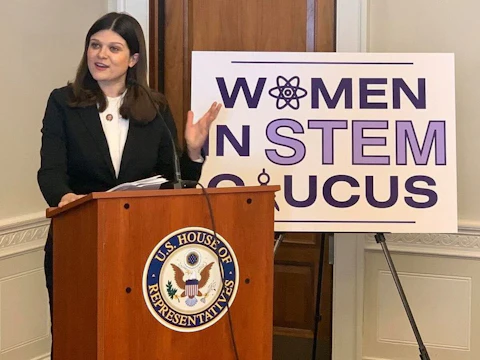Detroit Mayor Mike Duggan said that the fast and accurate count of this presidential election is a duty that “weighs on every big city in the country.”
DETROIT—The city of Detroit will be closed for the two days following the Nov. 3 election so that all city employees can be at the clerk’s disposal to count absentee ballots.
Clerks from Lansing to Taylor have told The ‘Gander that their offices are bracing for a massive influx of absentee voting this year, as concerns about disastrous elections like Wisconsin’s primary spreading the coronavirus meet with record rates of voter turnout. Michigan expects as many as 3 million absentee ballots to be cast in the general election across the state.
That poses challenges for every clerk, but especially clerks in major cities like Detroit.
“If we do not make a commitment to get the mail-in votes counted quickly and accurately, I really am concerned about: Will we have a claim of victory based on the people at the polls?” Mayor Mike Duggan said at a forum hosted by the Center for American Progress Action Fund. “If we do not across this country find ways to count the mail-in ballots quickly and accurately, there’s going to be a real question of legitimacy with the election. That’s something that weighs on every big city in the country.”
RELATED: ‘I’m Accountable to the Voters:’ A Day in the Life of Lansing’s County Clerk
Specifically, Duggan is concerned that since President Donald Trump has rallied against absentee voting, his supporters will be more likely to vote on Election Day, where exit polling is traditionally conducted and whose ballots tend to be faster to count. This would mean that the likely outcome on the night of Nov. 3 is a Trump lead that will soften or totally disappear as absentee votes are counted, a process that may take two weeks under a recent court ruling.
Not Repeating Mistakes of Detroit’s Past
Calling the results of an election before the votes were clearly counted in their entirety is the cause of the chaotic 2000 recount in Florida that led to the controversial Bush v. Gore Supreme Court decision. In that election, a series of conflicting calls by journalists over which candidate won Florida resulted in a protracted legal battle over who would become the next president.
Duggan’s concerns about repeating the mess of Florida in 2000 are shared by many election officials in Michigan, including Secretary of State Jocelyn Benson.
“We should be prepared for this to be closer to an election week as opposed to an election day.”
Secretary of State Jocelyn Benson
“If it takes a few extra days to ensure we have a full and accurate counting as a result of every race, that’s what it’s going to take,” Benson said on Meet the Press. “We’re going to be transparent throughout that whole process to make sure every citizen knows exactly where we are in the counting process and how many more ballots we have to get through.”
Benson is also working with Detroit, specifically, to address issues that arose in the city’s August elections. The city struggled processing the more than 70,000 absentee ballots it received in August and faces a total expected to be twice that in November. City Clerk Janice Winfrey blamed those struggles on a large number of new election workers and record-setting voter turnout.
In 2016, Detroit faced problems with its voting machines failing, causing ballot discrepancies across over half the city. Then-Elections Director Daniel Baxter told TIME that these kinds of issues happen all the time in Detroit.
SEE ALSO: Easy Money, Rising Challenges: An Inside Look at Being a Poll Worker in Michigan
Michigan’s Board of Canvassers, who certify election results, asked Benson to take over the Detroit Nov. 3 election, The ‘Gander reported. Benson and Winfrey will work together to recruit and train over 6,000 election workers, and will have the resources of the entire City of Detroit to ensure those kinds of problems can be prevented, or quickly addressed, in 2020.
Benson and Winfrey have a few additional tools at their disposal, thanks to a court ruling ensuring any ballot sent before the election should be counted and a provision passed by the state’s Senate to allow clerks to prepare absentee ballots to be counted prior to the beginning of the count itself.





